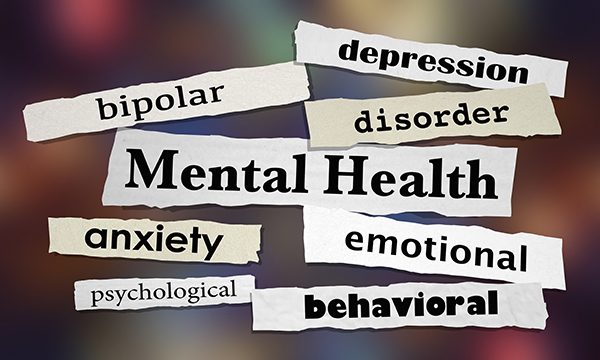10 Small changes that can help you deal with burnout
10/06/2023 / By Zoey Sky

Your mental health is crucial to your overall well-being. In the same vein, if you think you are suffering from burnout, you should try making small changes because this can cause physical, emotional, behavioral, relational and career consequences.
While some think having no work/life balance and not getting enough sleep is a badge of honor, you must remember that pushing yourself past healthy limits – whether it is working more hours than you get restful sleep or not taking the weekends off to relax – will do more harm than good in the long run.
Why is burnout bad for your health?
You often risk burnout when you do not replenish your physical, mental and emotional reserves on a regular basis. It is normal for things to get very busy at school or work, but this is only acceptable when it is short-lived, with a definitive end.
If possible, try to live your daily life in a way that is sustainable over the long haul. It is important to get enough sleep, follow a balanced diet, have hobbies, rest, connect with your loved ones, play and maintain life balance.
If you are worried that you are suffering from burnout, the condition will often cause symptoms that mimic depression:
- Decreased patience and tolerance
- Increased irritability
- Loss of pleasure and interest in previously enjoyed activities
- Sleep disturbance, including difficulty falling asleep, restlessness or sleeping too much
Additionally, your immune system may be compromised due to chronic stress. This means you may find yourself getting sick more often and suffering from aches, pains, headaches or digestive ailments. (Related: The best adaptogenic herbs for managing stress.)
How you view the world becomes more negative and worry can increase. Overall, you are not the best version of yourself if you are getting near the point of burnout.
There is often an unconscious fear of stopping and allowing yourself to feel the unpleasantness. It can also be hard to fully recognize the unhealthy patterns and to face the unsustainable imbalance.
And even if you can recognize the signs, you can feel overwhelmed by how to change the current conditions. This can make you check out or numb out by default. As a result, you may drink alcohol, overeat, oversleep, zone out on screens or remain busy nonstop.
Because of the fast pace of modern life, it can be difficult to allow yourself to slow down, to rest and to take time off from constant productivity.
If you are on the brink of experiencing burnout, here are small positive changes that can help prevent burnout or pull you back from the brink.
Tips to prevent burnout
Stop and breathe
If you are used to a fast-paced work week, it can be hard to stop and assess your feelings. But this is important if you want to maintain your mental health.
Take a few deep breaths to counteract fight-or-flight, or your body’s reaction to stress and perceived danger. Do this regularly, not just when you are stressed and tired.
Accept that your balance is “off”
If you take the time to recognize what is not working well in your life, you can eventually go about the process of altering it.
Think of why you have to create better balance
Do you want to be a better parent? Do you want to feel more energetic and healthier?
When establishing new habits, you may need to periodically return to your “why” when faced with resistance to change.
Identify the area in your life where imbalance is most pressing
Is this imbalance affecting your sleep or time spent with your kids?
Whatever the reason, identify one micro-action step towards balance in this area.
Find small, simple ways to replenish your energy
These small changes do not have to be expensive or time-consuming.
If you are worried about burnout, wake up 10 minutes early to read or meditate. You can also reset by taking a 15-minute walk at lunchtime or setting up a weekly phone call with a friend to catch up.
If you’re not sure where to start, brainstorm a list of possible changes
Once you have your list, look for one or two small, doable habits you can start with immediately to avoid feeling overwhelmed.
Some situations may seem impossible, but there are always helpful changes that you can make.
If things at work are constantly stressful, it may be time to reevaluate your options. If possible, look for a work environment that allows you to be happier, less stressed and less anxious because this can make you more productive at work.
Take regular five-minute mindful breaks during a busy day
A mindful break can include stopping to take five deep breaths and stretch or eating lunch away from your desk.
Try to find out what helps “fill” you up (or what used to), what makes you smile or increases your energy.
Look for a way to carve out just a few minutes of your day for these things.
Ask for help
If you are overwhelmed, talk to someone you trust like your partner, a friend or a family member who can “lovingly keep you accountable, offer encouragement, or share some of your responsibilities.”
Even your loved ones cannot read your mind. Unless you talk to them, they may not realize that you are struggling.
Assess how the conditions deteriorated to this degree
Are your expectations too high for how much you think you should accomplish? Are you operating out of guilt or fear?
Think about what you would tell your friend in the same situation. Remember that you deserve the same kind of treatment you would offer a friend.
Always be kind, firm and encouraging with yourself.
Support your mental health and talk to your loved ones to help protect yourself from the adverse effects of burnout.
Watch the video below to learn about nervines and adaptogens that can help relieve symptoms of stress, anxiety and burnout.
This video is from the Holistic Herbalist channel on Brighteon.com.
More related stories:
Improve sleep quality to bolster your resilience against anxiety and depression.
Here’s how essential oils help relieve depression symptoms.
BURNED OUT: 1 in 5 nurses could quit over the next 4 years due to post-pandemic burnout.
Sources include:
Submit a correction >>
Tagged Under:
anxiety relief, beat depression, brain health, burnout, depression symptoms, health science, mental health, Mind, mind body science, natural cures, natural health, natural medicine, prevention, remedies, stress relief, tips
This article may contain statements that reflect the opinion of the author
RECENT NEWS & ARTICLES
COPYRIGHT © 2017 NATURAL CURES NEWS




















